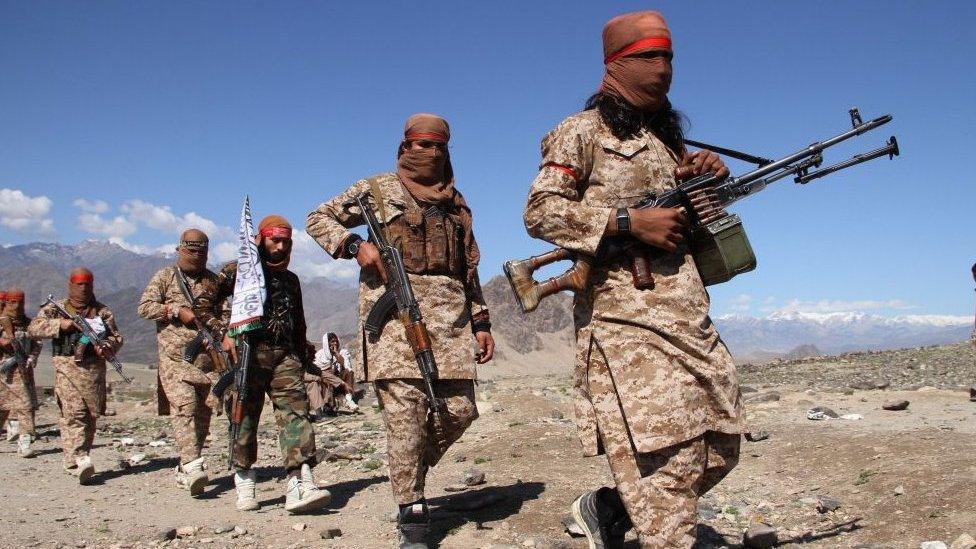Afghanistan: What's changed a year on from the Taliban takeover?
- Published
- comments
How girls in Afghanistan are still finding ways to learn
One year ago, the lives of millions of people living in the middle eastern country of Afghanistan were turned upside down.
In August 2021, a military group known as the Taliban overthrew Afghanistan's government and took control of the country.
Their rise to power made headlines across the world, with many worried about what would happen next.
Since their takeover, the Taliban have brought in lots of new rules that have affected the day-to-day lives of many Afghan people.
The people who have likely felt the impact of the new Taliban regime the most are women and girls.
Why were people worried about a Taliban takeover?
Afghanistan: What led to the Taliban taking over? (from August 2021)
The Taliban is a military group with very strong views about how people should live their lives.
When they previously ruled Afghanistan from 1996 until 2001 they brought in lots of strict rules.
During that time women and girls of secondary school age were not allowed to have an education.
Women and girls of a certain age were also forced to wear burqas - long dresses that covered their bodies from their heads to their feet.
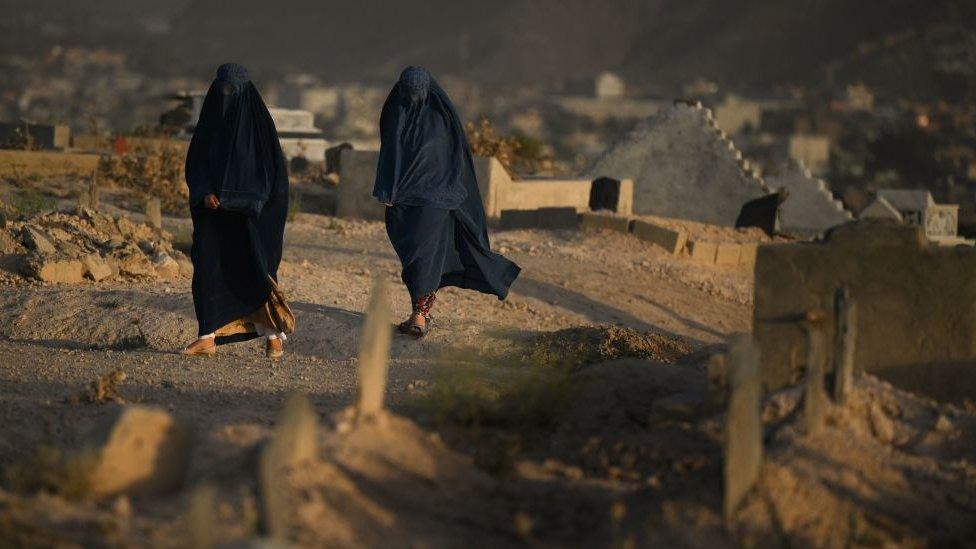
Women and girls now have fewer rights in Afghanistan since the Taliban takeover
Television, music and cinema were banned.
The Taliban said they did this to preserve Islamic values, but their views are thought to be very extreme by the rest of the world, including most Muslims.
Lots of people were worried when the Taliban rose to power again last year, as they were concerned that they would bring in the same rules to limit the freedoms of millions of Afghan people.
What has happened since the Taliban takeover?
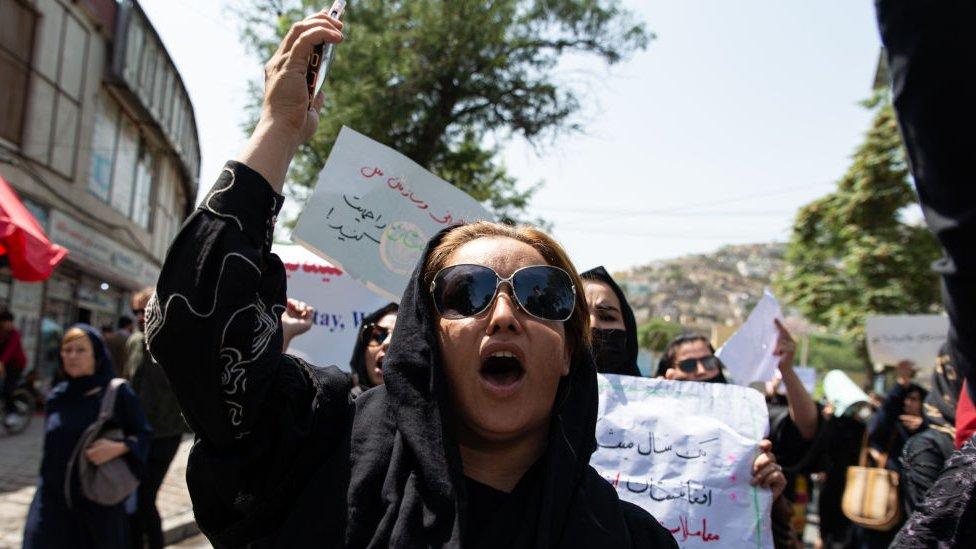
When they first regained power, the Taliban said they would allow girls to stay in education but in March, they appeared to go back on this promise.
Girls have been able to continue attending primary school but have been stopped from joining secondary school classes.
The Taliban say this is because there are not enough female teachers and they've had trouble arranging schools so that girls and boys are kept separate at all times.
According to the United Nations, 1.1 million girls have been affected by the ban.
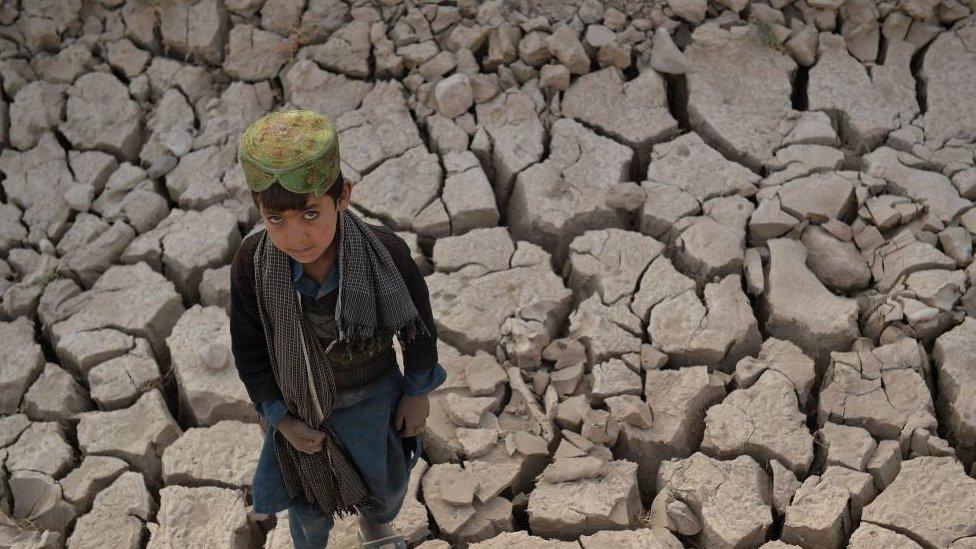
Drought has had a big impact on harvests
Women are also no longer allowed to go to public areas without a male guardian, and have been told they need to wear certain kinds of clothing to cover up their body.
The number of women now working in the country has fallen from 22% to 15%, according to the World Bank.
After the Taliban took over, many were told to leave their jobs and get male relatives to apply to take it on instead.

Economically, Afghanistan has struggled since the Taliban takeover.
Before the takeover, 80% of the country's budget came from foreign donors a lot of this aid was paused or stopped following the Taliban's rise to power.
That is mainly because donors were concerned about the rights of people in the country.
Afghanistan: The children working instead of going to school (from January 2022)
As a result of the bad economy, access to food has become an issue and there are fears that there will be lots of people going hungry.
Farms that are growing food crops have also suffered because of bad weather conditions, like droughts.
Some Afghan people have welcomed the order that the Taliban has brought, and there has been much less violence in the country in the past year.
But others argue that the decrease in violence is largely because the Taliban are no longer fighting for power.
What has the reaction been?
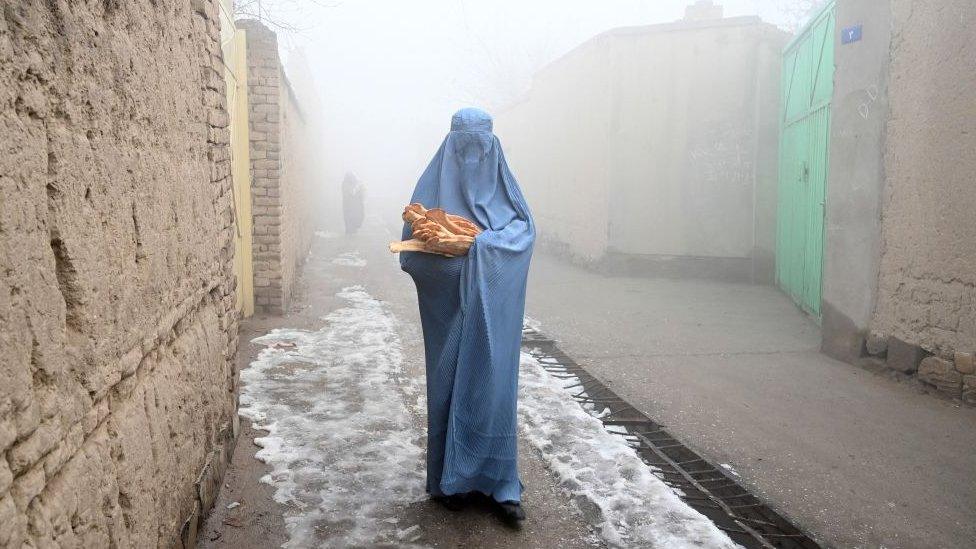
Many people in Afghanistan rely on aid and donations from charities
Lots of governments and humanitarian charities are very concerned about the situation in Afghanistan.
Human rights experts working for the United Nations made a statement on the one year anniversary of the Taliban's takeover, saying "Despite making numerous commitments to uphold human rights, the Taliban have not only failed to deliver on their promises, they have also reversed much of the progress made in the past two decades".
Amnesty International - a human rights charity - has called on other countries to do more to help Afghanistan.
"To prevent Afghanistan's human rights crisis from spiralling further, the international community must take meaningful action to hold the Taliban accountable for these crimes," Amnesty International's South Asia Regional Director Yamini Mishra said.
- Published17 August 2021
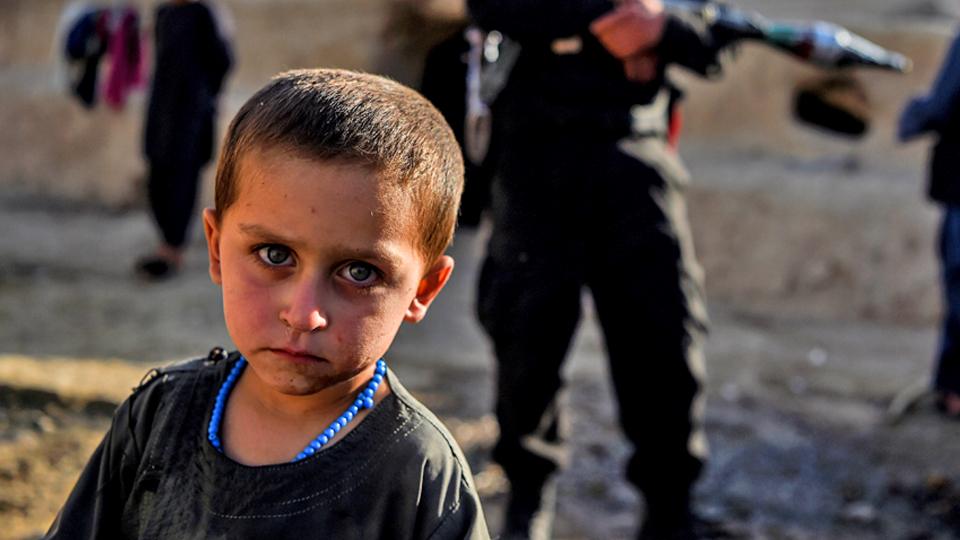
- Published17 January 2022
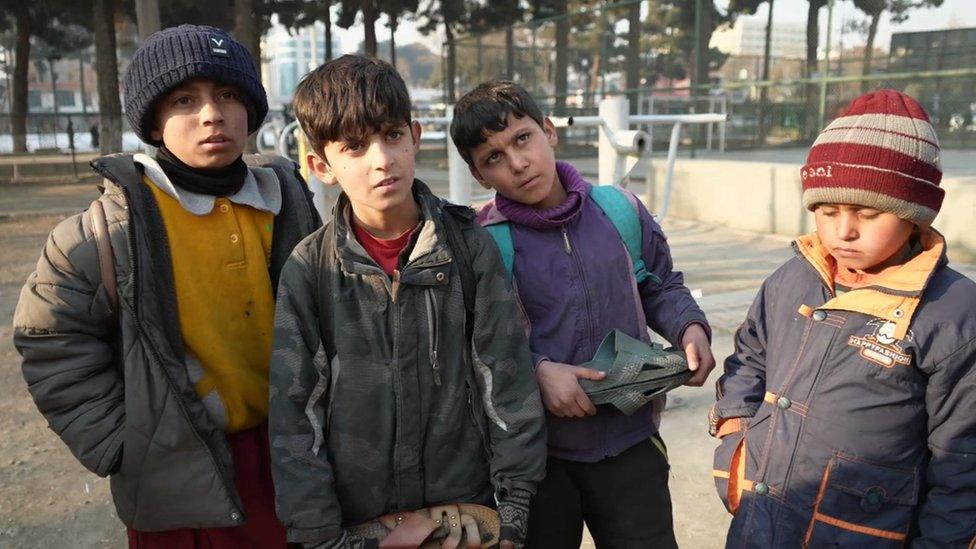
- Published17 August 2021
